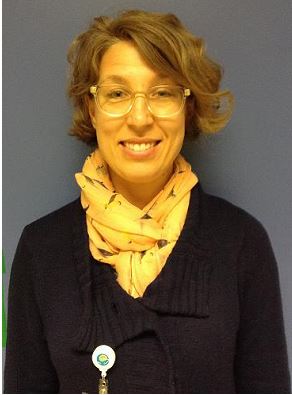- Tell us about yourself: I received both my B.Ed. and M.Ed. in Special Education, 2002 and 2008 respectfully, from Gonzaga University. I received my PhD in School Psychology from the University of Iowa in August of 2016.
- What are you doing now?: I am currently a psychology fellow at the Seattle Children’s Autism Center working in the Biobehavioral and the ABA Early Intervention programs. I specialize in assessing and treating challenging behaviors that often are associated with autism and other disabilities. I have accepted a position with the Child Development Center in Missoula, MT and I will start in October 2017.
- Why did you choose a program in the School of Education at Gonzaga? At the beginning, I just wanted to be at Gonzaga University and I was undecided between majors and academic programs. I was involved in several sports when I was younger and I thought coaching would eventually be in my future. Most of my former coaches were teachers so registered for my first education class with Dr. Tim McLaughlin. I remember loving the discussions in that class and he inspired me to pursue special education. The next semester, I registered for applied behavior analysis (ABA) with Dr. Randy Williams. ABA was life changing for me. Understanding and analyzing the concept of learning through the principles of reinforcement and punishment made intuitive sense to me. I knew I was in the right program after taking that course!
- What influenced you the most during your time at Gonzaga?Each member of the faculty reach out to me, taught me critical skills, and believed in me in different ways throughout my Gonzaga career. Tim was influential in getting me started down the path of special education and for advising throughout my undergrad. Randy was influential in teaching me the foundational principles of ABA and modeling ABA in his teaching. Mark (Derby) was influential by convincing me to pursue my masters at a time when I was so unsure of what to do with my life. Kim (Weber) is influential by modeling leadership and advocacy, not only for the population of students that special educators serve, but for her undergrad and graduate students. Anjali (Barretto) was influential by simultaneously modeling passion for our science and compassion for all the children who walk in our doors. She was also instrumental in my choice to pursue my PhD at University of Iowa and to work with Dave Wacker. It was the most difficult, but by far the most rewarding choice of my life.
- What was your greatest lesson learned at Gonzaga? Gonzaga taught me several valuable lessons two of which come immediately to mind. First, I learned is that Gonzaga will always be a second home and Gonzaga’s faculty, staff, and fellow alumni are family. Between graduating from Gonzaga with my bachelor’s and coming back to earn my master’s, I sustained a life-changing traumatic brain injury (TBI). I was at St. Luke’s Rehabilitation and Deaconess for several weeks. But the time went by fast because I had so many visitors. Tim and Randy among them. As soon as I could, I began volunteering at Gonzaga as a rowing assistant coach and would walk across campus to visit the SPED faculty regularly. I was always welcome at Gonzaga! Learning how to navigate the world of disability while showing individuals their true abilities was the second lesson I Iearned at Gonzaga. From writing an individual education plan (IEP) to researching rare genetic syndromes, I learned that that the word “disability” is multi-faceted. At the same time, every individual has amazing abilities.
- What is the most rewarding aspect of working in your field? Most challenging? Strength: Seeing the growth in a child and showing parents their child’s strengths through your data. For example, I recently saw a 5-year-old girl with destructive behavior. Her mother just wanted to keep her safe. We implemented a play intervention to teach her to play with her toys instead of throwing them and the outcomes were successful. Her mother was brought to tears when she saw her daughter playing and said, “she has never done that before!”Challenge: Keeping up with the need.
- What critical issues do you see that need to be addressed in your field? Making quality services more accessible.
- What advice do you have for future education professionals? “When in doubt… persist, don’t punt.” A quote from Dave Wacker.

Leave a Reply